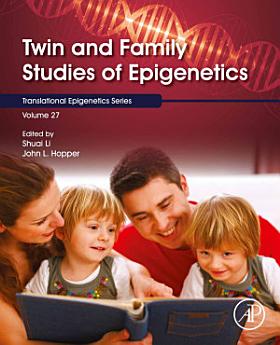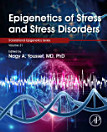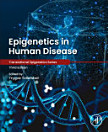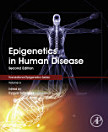Twin and Family Studies of Epigenetics
ഈ ഇ-ബുക്കിനെക്കുറിച്ച്
രചയിതാവിനെ കുറിച്ച്
Dr Shuai Li has long-term experience in analyzing data from twin and family studies, including the novel epigenomic data. His PhD uses twin and family studies to research DNA methylation. He has published more than 10 papers on epigenetic epidemiological studies, specializing in twin and family designs.
Professor John Hopper, AM, was one of the nine inaugural Australia Fellows awarded by NHMRC in 2007 and is currently a NHMRC Senior Principal Research Fellow. He is a Professorial Fellow with a PhD in Mathematical Statistics, and is currently Director (Research) of the Centre for Epidemiology and Biostatistics in the School of Population Global Health at The University of Melbourne. He has published more than 700 papers, specializing in the statistical methodology and its application for analyzing twin and family data, and addressing the genetic and environmental aetiology of diseases and health. He is principal or co-investigator on a number of case-control-family studies across a range of diseases and conditions, particularly breast cancer and colorectal cancer (both funded by the National Institutes of Health (USA)), prostate cancer, melanoma, childhood cancer and asthma. He is a co-investigator on several cohort studies, including Health 2020 and long term follow-up of the 1968 Tasmanian Asthma Study. Professor Hopper has been Director of the Australian Twin Registry (Now is Twins Research Australia) since 1990 and has been awarded a NHMRC CRE grant in Twin Research in 2014.
Dr. Tollefsbol is a Distinguished Professor at the University of Alabama at Birmingham. He holds doctorates in molecular biology and osteopathic medicine, trained with National Academy of Science members and has over 200 peer-reviewed publications. Reports highlighting the translatability to the lay public of the discoveries made in his laboratory have appeared in international media representing >50 million readers. Dr. Tollefsbol has been featured as an Investigator in the Spotlight by the NIH as well as a Scientist in the Spotlight by ScienceNow. He is an Associate Editor for Frontiers in Genetics, a contributor to Lewin’s GENES classic textbook and Lead Editor for Elsevier’s Translational Epigenetics Series. Dr. Tollefsbol has been named a “Highly Ranked Scholar worldwide (ScholarGPS). He has been invited for numerous endowed keynote presentations, his research has been highlighted in eScience News and ScienceDaily and he has published 20 scholarly books on topics related to his research.










